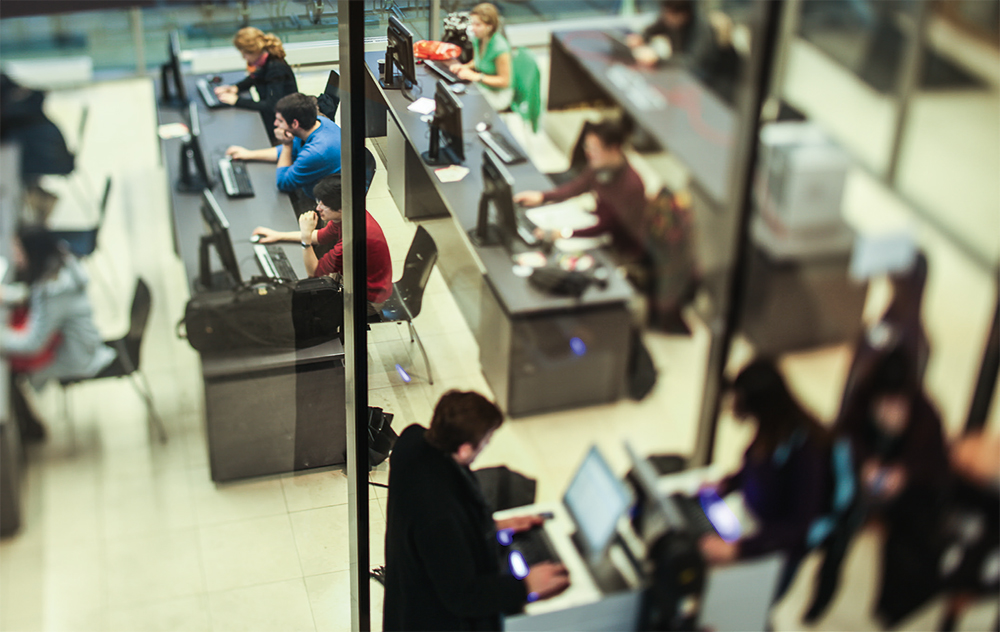The mdw project Akademische Integrität [Academic Integrity] ensures a high standard of quality for degree theses, and its active implementation is making waves.

For a long time, academic integrity seemed to be something that went without saying and didn’t require much thought. Where, if not at universities, could one be sure that honest work was being done? But over the past few years, we have all noticed the increasing number of accusations—directed above all at public figures—pertaining to plagiarised degree theses, such as that of the former German MP and minister Karl-Theodor zu Guttenberg. Since then, there has been no lack of similar stories in the German-language and international press.
A concrete case a few years ago at the mdw moved this institution, as well, to take a closer look at how the originality of scholarly and artistic final projects could be more effectively checked, as well as at how possible cases of plagiarism and/or intertextual errors could be prevented ahead of time.
With support from the rectorate team, the experts from the university’s Department of Organisational Law and Appointment Management (ORB)—Karl-Gerhard Straßl and Martina Baravalle— developed a strategy that includes concrete measures designed scrutinise the scholarly quality of the papers produced at the mdw.
A workflow has been implemented that uses software to more easily determine texts’ identities. To this end, the obligation to electronically submit all scholarly and artistic diploma theses, master’s theses, and dissertations at the mdw guarantees comprehensive inspection, and only following analysis by two ORB experts working according to the four-eyes principle may the bound version of such a thesis be officially turned in by its author. Additionally, a working group has been set up to formulate minimum scholarly and artistic standards that such papers will have to meet in the future.
The second important component of dealing with this topic has to do with prevention. Students and instructors should be sensitised and receive the best possible support in the sometimes unaccustomed role of producing a scholarly or artistic final thesis and/or advising its creator. In this interest, the on-going project entitled AKI – Akademische Integrität provides helpful information and working materials to all those involved, organises informational events, and offers help in the development of processes by which to advise those writing. The next such event is scheduled for 21 January 2017, and its German-language title translates roughly as: The Alien Spirit in My Text. Good Scholarly Practice in Dealing with Others’ Ideas, Words, and Findings.
This initiative to support students and instructors is already bearing fruit, with the quality of submitted texts constantly on the rise, say the project’s heads, who regularly hold lectures on this topic at other educational institutions, as well.
The intensive process of dealing with this material, by the way, has already gone so far that the definition of the term Plagiat [plagiarised work] formulated by Straßl and Baravalle has since been taken to the organisation uniko – Universities Austria, via which the relevant ministry and the Austrian parliament ultimately made it (in slightly revised form) part of the 2015 amendment to the Austrian Universities Act.
Further details on the project Akademische Integrität and current events can be found at www.mdw.ac.at/aki

